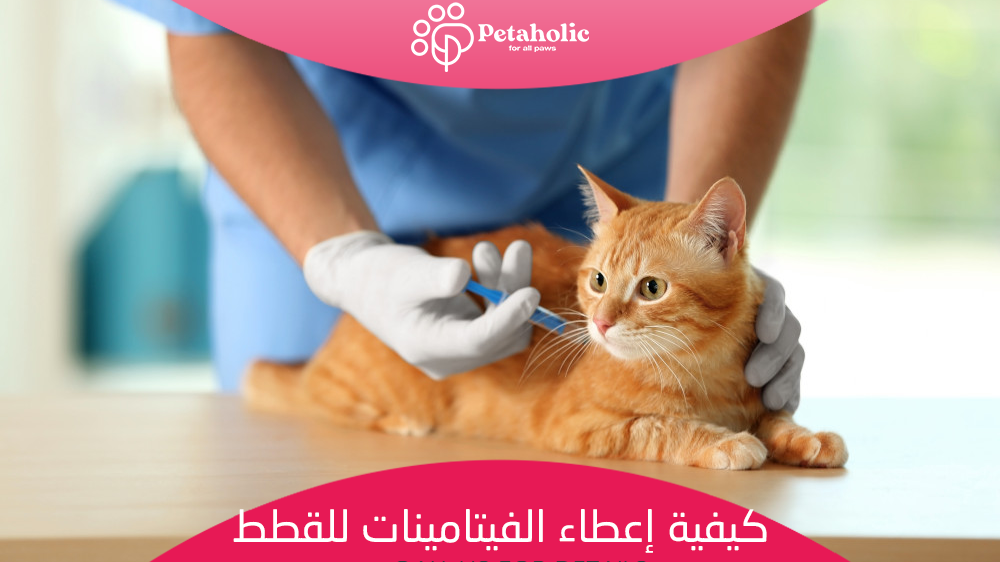
Just like humans, feeding cats begins with the proper vitamins and minerals for development and growth. Cat vitamins are essential for producing enzymes that help the body absorb nutrients by metabolizing food and extracting energy from it. But not every cat is alike or has the same nutritional needs. Then you should know how to give vitamins to cats according to their needs to maintain good health and long life. In this guide, we show you how to do this, in addition to the most important vitamins that you can give your cat. We also provide you in our store with all the necessary vitamins for your cat of the highest possible quality.
How to give vitamins to cats according to their basic nutritional needs
Here is how to give vitamins to cats, follow:
Assess your cat's health and discuss the matter with your veterinarian
If you are considering giving your cat nutritional supplements, it is important to understand her overall health. This evaluation should be done by a veterinarian. Conducting a comprehensive evaluation will allow you to make decisions about what supplements your cat needs and what it does not need. A good time to get a comprehensive understanding of your cat's overall health is during your annual checkup. You should also discuss the matter with your veterinarian who has a good understanding of your cat's health, and has the veterinary knowledge to recommend what you may or may not do with its health. Your veterinarian will also likely warn you not to take too many supplements. While it's important that your cat gets all the essential vitamins and minerals she needs to stay healthy, giving her too many vitamins and minerals can also harm her health.
How to give vitamins to cats as directed
You should buy supplements and vitamins for your cat from a trusted place like Betaholic so you know you are getting a safe, high-quality product. You should also make sure to read all the ingredients so that you do not give your cat more ingredients than it actually needs. As with all medications and supplements, it is important that you follow the directions on the package provided, or your veterinarian's suggestions for dosage and on how to properly administer vitamins to cats. This will help you ensure that your cat gets a therapeutic dose of the supplements you want to give him.
Supplements can be given to your cat in several ways. Some supplements are given in pill form, and others are more easily administered to cats, such as oils or powders applied to food. There is not a lot of data out there about the safe use of nutritional supplements in cats. So in order to protect your cat, discuss the dosages of nutritional supplements and vitamins with your veterinarian before making any decision as we mentioned before.
Among the best vitamins and supplements that we recommend giving your cat to improve the health of cartilage and joints:
What are the most important essential vitamins that cats need to enjoy optimal health?
Vitamins are essential substances for your cat's good health; This is because they provide the energy and nutrients needed to maintain normal physiological functions. Cats need different nutrients from carbohydrates, animal protein and fat. However, some vitamins are not produced within a cat's body and must be ingested through cat food and supplements.
Vitamins can be divided into two categories: fat-soluble and water-soluble. Fat-soluble vitamins include A, D, E, and K. Water-soluble vitamins include vitamins C and B complex. Most cats only need trace amounts of fat-soluble vitamins (less than 100 mg per day). This is because they can store these nutrients in their livers until they need them again later. Below are the most important vitamins that cats need in their food and nutritional supplements to stay healthy. Here are 10 nutrients that cats need in their food and supplements.
Vitamin A
Vitamin A is an essential nutrient that helps maintain healthy vision, skin and bones. It is also vital for cell reproduction and growth. Great sources of vitamin A include eggs, cheese, and fish oils. However, the best source of vitamin A is beta-carotene found in carrots, spinach and sweet potatoes. For cats that do not eat these foods regularly, vitamin A supplements may be needed. This is also true for cats with allergies or kidney disease, where food intake must be restricted. Cats only require small amounts of vitamin A compared to dogs.
amino acids
Amino acids are the building blocks of protein synthesis. While amino acids are not considered a vitamin, cats need to get them on a daily basis through their diet. Cats also require 22 different types of essential amino acids; And only 11 of them are formed in the body of cats. Cats need higher levels of protein and amino acids than dogs because they break them down quickly. They are unable to adapt if amino acid levels (such as taurine) are low.
B vitamins
Vitamin B is necessary for making red blood cells, which carry oxygen throughout the body. It is also important for the health of your cat's nervous system and for it to produce antibodies that fight infection. The most common type of B vitamin deficiency in cats is anemia. But in some cases, it can also cause neurological problems and behavioral changes such as aggression or depression. Most symptoms of vitamin B deficiency include lethargy, decreased appetite, hair loss, diarrhea, and pale gums. If you notice any of these symptoms in your cat, consult your veterinarian about getting vitamin B supplements.
Vitamin C (ascorbic acid)
Vitamin C is a powerful antioxidant that is manufactured by the liver. Vitamin C plays a key role in the immune system and helps form collagen. Collagen is the connective tissue that supports the skin, bones and blood vessels. Some other benefits of vitamin C include:
- wound healing
- Protection from infection
- Promote bone health
- Tissue growth
- Immune regulation
- Prevent diseases
- Formation of teeth and bones
In very rare cases, your cat may suffer from scurvy, a disease caused by a vitamin C deficiency. Therefore, you should discuss with your veterinarian how to give vitamins to cats and how much they need them.
If your cat faces a lot of diseases in short periods, this means that its immunity is weak, and there is nothing better than this wonderful supplement rich in vitamins to raise its immunity:
Thus, we learned how to give vitamins to cats . Thus, cats get most of their vitamins and minerals from their daily food, but if your cat is a picky eater and is not getting the necessary vitamins or minerals, she may need additional support. That's why cat supplements are important. Fortunately, in our store you will find a variety of cat supplements to suit all of any cat's nutritional needs.
You may also be interested in:
- What are the harms of delaying cat vaccination for your cat? Are vaccinations necessary or not?
- Why is vitamin C important for pets?

